Interested in the kings of France of yore?
We will introduce you to the men who ruled the country, from Hugh Capet to the one and only Sun King, Louis XIV, for a taste of monarchy at its most powerful, dangerous, and still felt to this day!
And, if you want to share your experience of following in the footsteps of French royalty on Instagram, bringing your iRoamly France travel eSIM is a great choice.
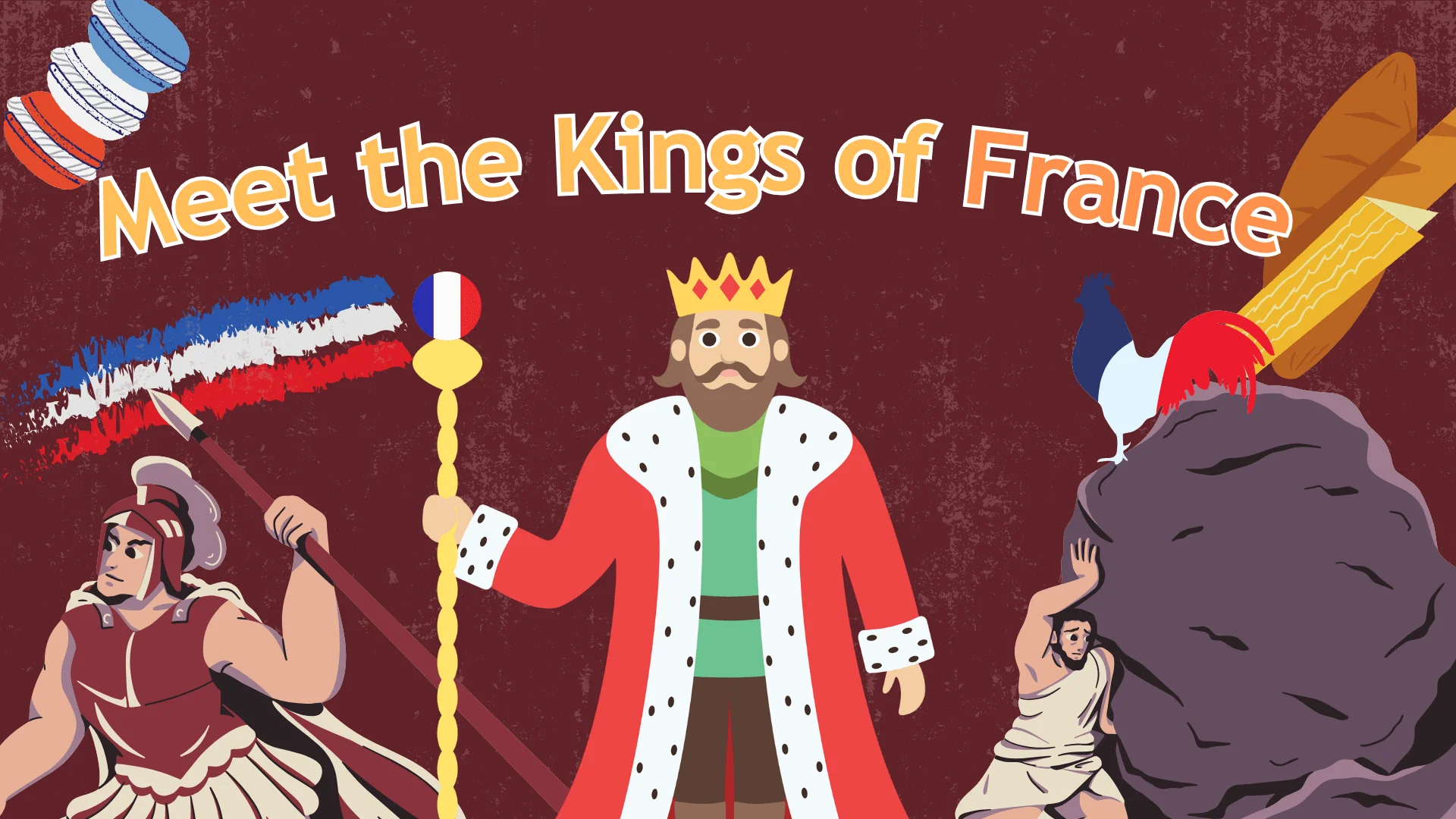
Is There Still a King of France Today 2024?
Surprisingly, it’s been that way since 1848 – France is one of the many republics in the world, with the last reigning monarch being King Louis-Philippe, who ruled until a revolution heralded the start of the republican era in Europe in February 1848. The role of head of state in France is now held by a President, with a Prime Minister acting as head of government – in our case, as of 2024, Elisabeth Borne.
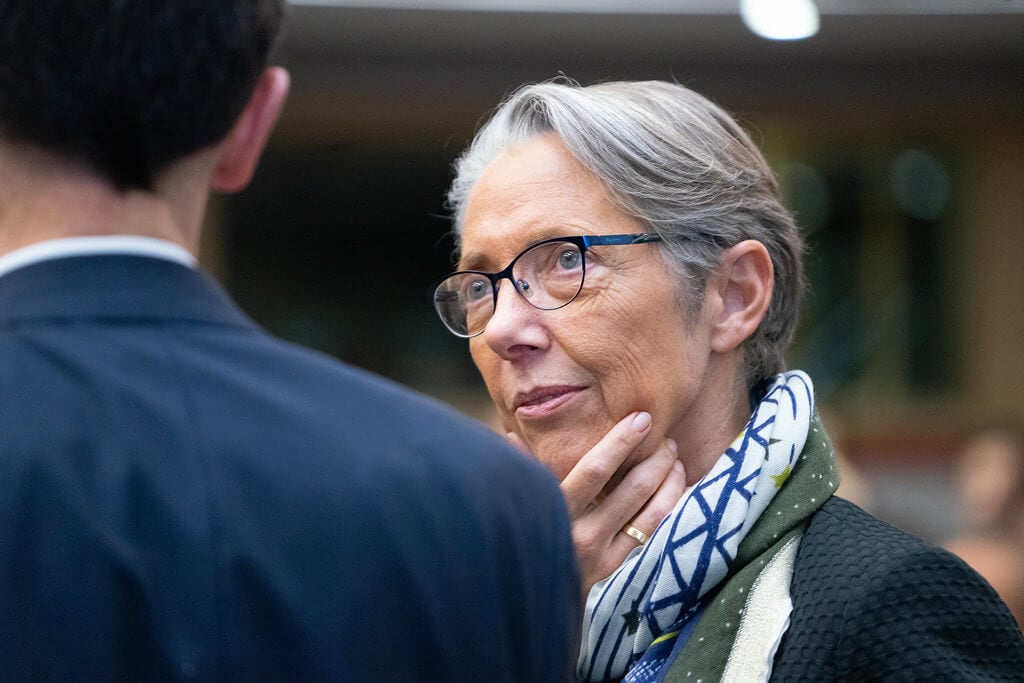
Co-incidentally, digging into France’s often-turbulent royal past also gives a peek into modern-day politics, as the likes of the nearly 20% vote share for populist royalist candidate Jean-Marie Le Pen in the 2002 French Presidential election shows.
The Modern French Royalty
As to be expected, there are no living pretenders to the French throne, but there remain royalist factions that push for the restitution of the titles and privileges of the former French royal families. The two branches that claim the crown today are the Houses of Bourbon and Orléans.
These pretenders often make appearances at ceremonial and historical events, and represent the closest most will come to living members of the royal courts of yesteryear.
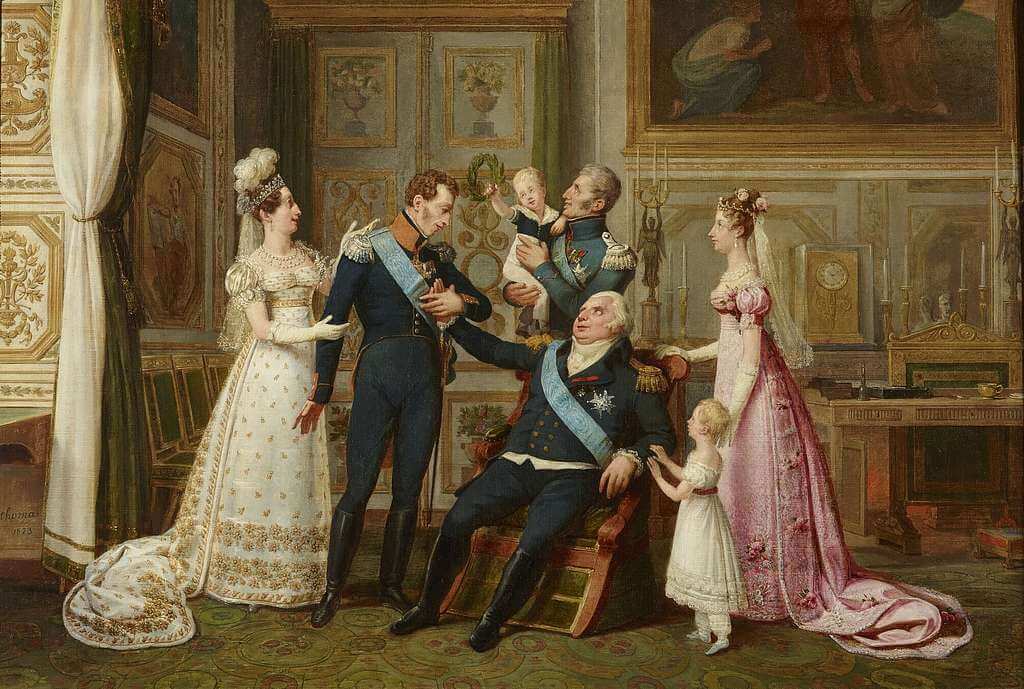
Of course, it’s worth remembering that these titles are now symbolic, with no power or mandate behind them – they’re a link to the nostalgic past glories and shames of a people trying to establish an identity, regardless of the perils of absolute rule.
Who was the First King of France?
Commonly held wisdom has it that Hugues Capet, who acceded to the throne in 987 AD, is the first king of France. He is actually the first to be considered so in the direct line, following the collapse of the Carolingian empire.
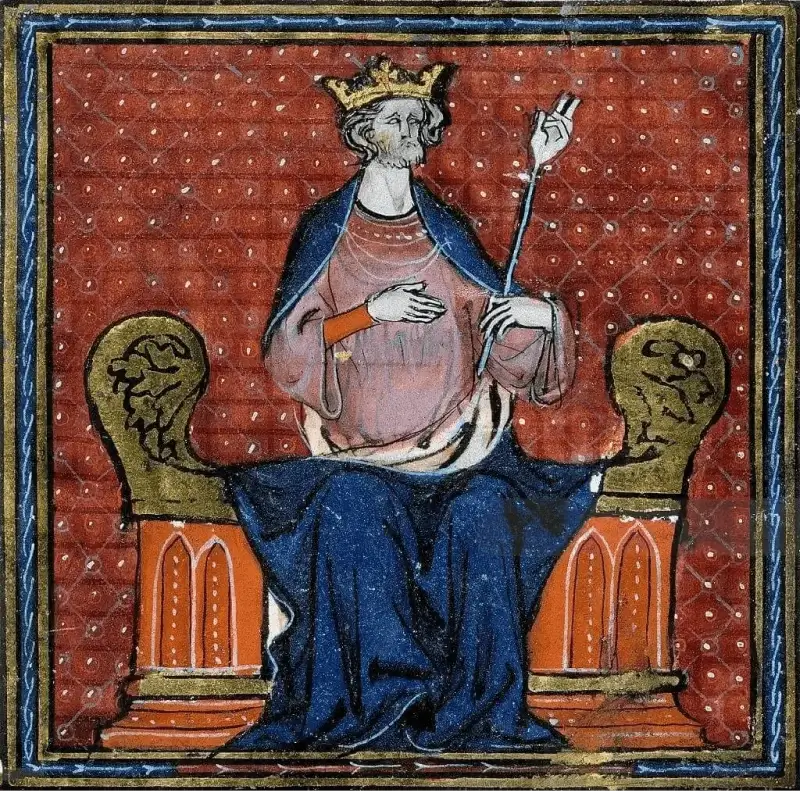
Under his rule, the disparate regions by which Charles the Simple, Odo and others heaped upon their royal title began to be subsumed into a more unified land – but focus more on the Capetian dynasties in the centuries since would establish the unified imperial nature of France, leading to the evolution of a unique national identity as a people and a political concept.
To complicate matters further, between the reign of Hugues Capet and when the French crown went elective with Robert III there were other notable transitional kings – including members of the Carolingian dynasty, such as Louis I. Though he wasn’t a king of a centralized France in the modern context, his reign had a determining influence.
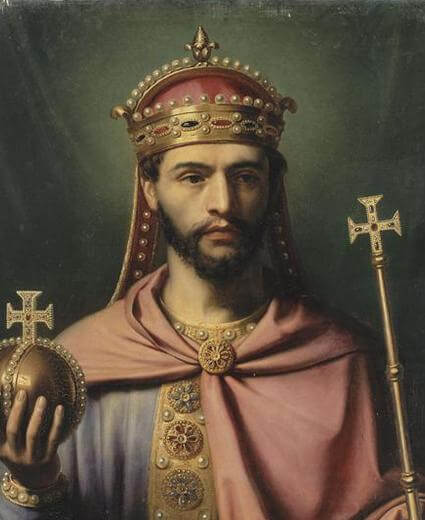
The French kings that succeeded him adopted the numbering scheme begun with Charles III before, and from Louis XVIII in 1824 all Kings of France were numbered such from Louis I of Aquitaine.
However, for simplicity’s sake, Hugues Capet is still the French touchstone – “King of the Franks” may be the proper term.
Who Is the Most Important King of France?
Some might argue Louis XIV, the Sun King, takes the crown. He was crowned at the age of five in 1643, and ruled until his death in 1715, one of the lengthiest reigns in European history, and one that allowed him to mold France into a centralized state and exemplify the concept of absolute monarchy.
His most notable achievement is the Palace of Versailles, synonymous with his reign and evoking the luxury and the absolute rule of the monarchy. His reign also saw a cultural renaissance in France and gained the country status as the heart of the art, literature and science of Europe.
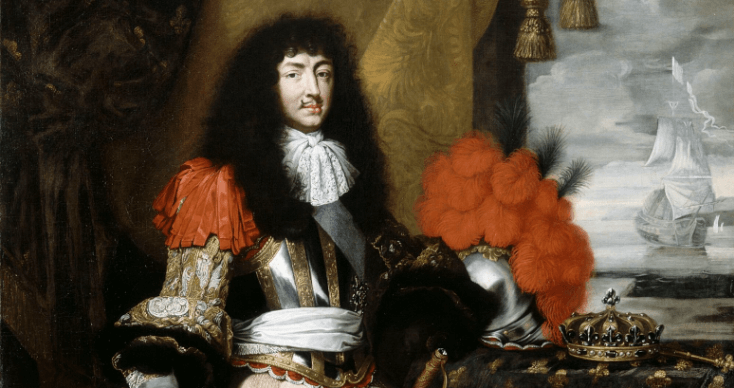
His edicts and policies touched every aspect of French life, from governance to culture, religion, and economics. These foundations have had a lasting influence on the current French government, shaping the country's political and cultural identity.
Louis XIV also oversaw the building of the Canal du Midi, was a prolific patron of the arts, and founded the French Academy of Sciences – all of which has left an indelible mark on the French state.
How many kings of France have there been?
In total, there have been around 53 actual kings of France. Here are the monarchs that led France through its most crucial moments in history:
Name | Reign | Notable Contributions |
Charlemagne | 768-814 | United most of Western Europe for the first time since the Romans. |
Louis IX (Saint Louis) | 1226-1270 | Embodied the ideal of a medieval Christian monarch, led two Crusades. |
Francis I | 1515-1547 | Renaissance patron, initiated the French exploration of the New World. |
Henry IV | 1589-1610 | First Bourbon king, known for his efforts to restore peace in France post-religious wars. |
Louis XIV | 1643-1715 | The Sun King, epitomized royal absolutism, built Versailles. |
Louis XVI | 1774-1792 | Last king before the French Revolution, executed for treason against the Republic. |
FAQ
Who was the best French king of the Middle Ages?
The coronation ceremony of Napoleon Bonaparte was held at Notre-Dame Cathedral in Paris, the capital of France, on December 2, 1804. In terms of leadership, even though Napoleon Bonaparte did not have a legitimate royal title, he is often regarded as France's greatest leader due to the comprehensive reforms, military conquests, and educational developments he oversaw.
Who was the best French ruler ever?
In terms of leadership, even with no legal claim to being a king, Napoleon Bonaparte is often seen as the greatest leader of France due to the sweeping reforms, military conquests, and educational developments that he oversaw.
Who was the worst king of France?
Irony again takes the crown, with John II – also known as John the Good – proving not so good after all, overseeing disastrous defeats such as the Battle of Poitiers and heavy financial burdens on the realm.
Conclusion
Delving into these genealogical riddles, we uncover the paradox of French monarchy, a seeming absence that deeply shaped the culture and politics of the nation.
From the venerated Saint Louis to the vilified John the Good, each king engraved his own legacy onto France, weaving a history as rich and multilayered as the kingdom itself.
